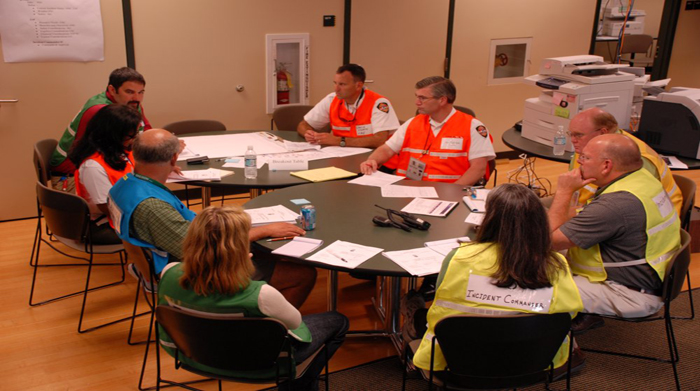Drills and Exercises and Practicing

We have beaten the drum for frequent drills and exercises enough to give even our own veteran associates and clients virtual headaches. And while we are still true believers in the beneficial effects of at least a cursory dusting off of the binders or electronic compendia of all things restorative, there must be good reasons for foregoing this year’s run-through, right?
Consider the impact of major leadership changes at the top of the org chart. Certainly, arrangements should be made for their learning curve to flatten out. Throwing a newly-minted senior exec into a complicated, multi-functional drill or exercise would surely cause confusion, chaos, awkward interventions and a lot of dumb questions. Better to wait a few months, or a year or so until everyone has reached a comfort level with the new execs.
Same thing goes for those pending mergers. Who knows what the new organizational scheme is going to look like. New leaders are bound to come in questioning your decisions about emergency planning and organization, or even who you’ve chosen to help plan and administer drills and exercises. Maybe they have their own preferred helpers or their own peculiar way of doing things. Better to be a team player, wait for the transition team and see what the emerging leadership team wants.
What if you have just weathered the worst storm or outages you’ve seen in the last 100 years? Certainly that experience, with all the lessons learned and taken to heart should tide your people over for a solid year or more?
Besides, your regulators are bound to let you off the hook if you have activated your emergency restoration plan a couple times this year. Let’s not overdo this by making everybody run through some unnecessary academic exercise.
Say What?
OK, enough with the misdirection. If you think any of the above are suitable reasons to forego or postpone an emergency exercise, we really need to talk.
Regardless of his or her prior role or experience, the new senior exec still has to make sure the power, gas or water keeps flowing. Being new to the position won’t protect them from the multifarious impacts of a 100 year storm. The buck will stop at their desk before it’s kicked downstairs to you, so it’s better to make sure your restoration team is well tested and fully capable.
And if you care about your customers’ welfare and your company’s fiscal health, waiting to drill till the merger dust has settled could be just as unwise. If your restoration stalls during a pending merger, just guess what the headlines and political blowback will target. Why not invite your potential partners to sit in on your next drill? They might learn something valuable, or they may have some valuable insights to contribute.
Just got through a really big storm last year and think you can skate for a while? Look at what happened to South Carolina this year. Or the record-breaking hurricane that hit Mexico. Sandy. Katrina. Twenty-year storms are commonplace now. We’re seeing 500 year, even 1000 year storms. It doesn’t matter what’s causing them, they’re happening. If you haven’t practiced recently for a storm that knocks out at least 75% of your customers, or a glitch that takes out your OMS, you’re out of practice.
And if you have relationships with your regulatory body that are so good that you trust them to cut you some slack based on recent restoration successes, congratulations. Just remember that your regulators are just as susceptible to political and media criticism as you are and it won’t take long before a rough restoration results in a regulatory audit. First question: “How often do you practice for emergencies?”
When Can You Really Forego Your Scheduled Drills and Exercises? Really?
The affected utilities in South Carolina probably won’t have to run another training drill this year. Neither will those affected by the fires in California.
Neither will any other organization that has either gone through or drilled recently for a 500-year storm, administered an in-depth debrief of the exercise, codified their lessons learned, and made changes accordingly to their organization, facilities, equipment and plans. Even the most hard-nosed old Storm Bosses here at EPP would probably grant you a pass for a while if that’s what you’ve done.
So how are the exercises and drills going at your place?

